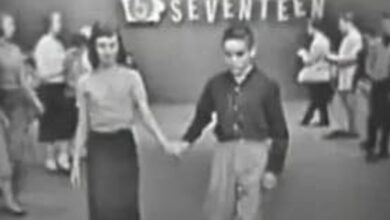Like An Old Lion, His Roar Weakened, But He Was Still A Lion; Cash Evoked Respect, Love, Sadness, Admiration
Johnny Cash’s final live performance, held on July 5, 2003, at the Carter Family Fold in Hiltons, Virginia, stands as a poignant and deeply moving testament to his enduring legacy and unwavering spirit. Just two months before his death, Cash, frail and wheelchair-bound, delivered a heartfelt 30-minute set that underscored his profound connection to his music and his remarkable resilience.
The setlist for this performance was a carefully curated selection of some of Cash’s most iconic and beloved songs. The list included “Folsom Prison Blues,” “I Walk the Line,” “Sunday Mornin’ Comin’ Down,” “Ring of Fire,” “Angel Band,” “Big River,” and “Understand Your Man.” Each song was chosen for its significance to Cash’s career and personal history, making the performance a reflective and emotional journey through his extensive body of work. The setlist was not just a display of his greatest hits but also a tribute to the experiences and milestones that shaped his life.
A particularly touching moment came with Cash’s rendition of “Ring of Fire,” which he dedicated to his late wife, June Carter Cash. June had passed away just two months prior in May 2003, and her absence was deeply felt by Cash. During the performance, he spoke of how her spirit was with him, providing him with strength and inspiration despite his own physical frailty. This dedication added a profound layer of emotion to the performance, highlighting the deep bond between Cash and Carter and the impact she had on his life and career.
Despite the noticeable shakiness in Cash’s voice, it retained the distinctive depth and resonance that had been a hallmark of his music for decades. His performance was accompanied by guitarist Jerry Hensley and bassist Bobby Starnes, whose support helped to create a fitting backdrop for the concert. The intimacy of the setting and the historical significance of the occasion made the performance all the more memorable for the audience.
Cash’s final performance was not just a musical event but a powerful display of his lifelong commitment to his craft and his deep connection with his fans. The emotional depth of the performance reflected Cash’s ability to convey profound feelings through his music, even in the face of his own declining health. It served as a fitting conclusion to a remarkable career, illustrating his resilience and the enduring power of his artistry.
Johnny Cash, born on February 26, 1932, in Kingsland, Arkansas, was a towering figure in country music, known for his distinctive deep voice, rebellious persona, and influential songwriting. His career spanned several decades, during which he produced a vast array of hits and became a cultural icon. Songs like “I Walk the Line,” “Folsom Prison Blues,” and “Man in Black” became synonymous with his name, and his ability to blend country, rock, and folk music set him apart from his contemporaries.
Cash’s influence extended beyond his music. His persona, characterized by his deep, resonant voice and often somber lyrics, resonated with audiences and earned him a reputation as a voice of authenticity and raw emotion. His personal struggles, including battles with addiction, and his moments of redemption, added depth to his public persona and connected with fans on a deeply personal level.
His legacy is also marked by his contributions to various social and political causes, including his outspoken support for the rights of prisoners and his advocacy for social justice. Cash’s work with other legendary artists, including his collaborations with Bob Dylan and his recording of the American Recordings series with producer Rick Rubin, further cemented his status as an enduring and influential figure in the music world.
In summary, Johnny Cash’s final performance at the Carter Family Fold was a poignant reminder of his remarkable career and enduring legacy. It was a testament to his resilience, his deep emotional connection to his music, and his ability to captivate and move audiences until the very end.





